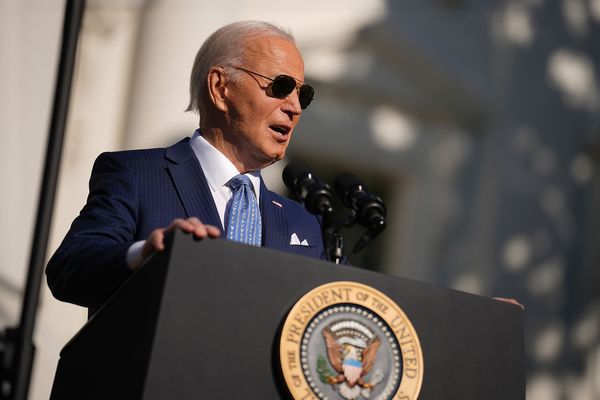
Tokyo (AFP) - The Bank of Japan on Friday stuck to its monetary easing policy even as other central banks raise interest rates to tame inflation, but said it would "pay due attention" to forex markets after the yen hit a 24-year low.
The bank will hold rates at minus 0.1 percent and continue buying unlimited government bonds to maintain a low cap on long-term yields -- part of a decade-old plan to boost the world's third-largest economy.
The decision, announced after a two-day policy meeting, bucks a global monetary tightening trend aimed at battling sky-high fuel and food prices caused by the Ukraine war and supply chain snarls.
Rate hikes have been led by the US Federal Reserve, which this week announced its most aggressive increase in nearly 30 years and signalled more were in the pipeline.
The European Central Bank has said it plans to start a series of increases next month, while the Bank of England announced a fifth straight increase on Thursday and Switzerland surprised markets with its own rate hike, the first since 2007.
The widening chasm between Japanese and US monetary policy this week pushed the yen to its lowest level against the dollar since 1998, a cause for increasing concern that even the central bank made reference to in its policy statement.
"It is necessary to pay due attention to developments in financial and foreign exchange markets and their impact on Japan's economic activity and prices," the BoJ said, in an unusual reference to forex movements.
After the announcement, one dollar bought 134.63 yen, up from 133.41 yen earlier in the day.
'Targeting price stability'
Bank governor Haruhiko Kuroda told reporters that the yen's rapid depreciation is "undesirable for the economy, because it has increased uncertainty about the future and made it difficult for companies to draft business plans".
However, he added that "central banks do not target exchange rates.We run monetary policy targeting price stability".
Kuroda said the BoJ was not considering expanding the trading range of 10-year bonds, a move analysts say could help support the yen.
A weaker currency helps Japanese exporters as it inflates repatriated profits, noted Yoshikiyo Shimamine, executive chief economist of Dai-ichi Life Research Institute.
For the BoJ, it may be that "these benefits overwhelm the negative aspects of a cheaper yen -- high prices for imported goods, which causes people to suffer without sufficient pay rises," he told AFP.
The bank's ultra-loose monetary policy aims to achieve two-percent inflation, a target that has been stubbornly out of reach during years of price stagnation.
In April, core consumer prices hit the target for the first time since 2015, but the BoJ has cautioned that it sees recent rising prices as a temporary and volatile trend.
Inflation has been rising for months in the United States and elsewhere as buoyant demand for cars and other goods clashes with supply problems caused by Covid-19 lockdowns.
The problem became dramatically worse after Russia invaded Ukraine in February and Western nations imposed steep sanctions on Moscow, sending food and fuel prices soaring, a particular problem in resource-poor Japan.







